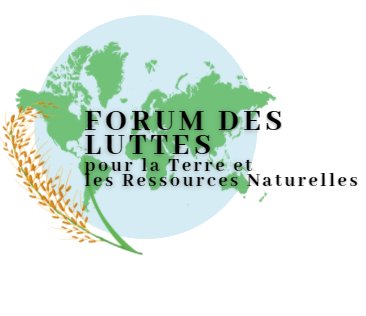1979 - Rome
Peasants' Charter, International Conference on Agrarian Reform and Rural Development
2004 – WFAR the World Forum for Agrarian Reform
From December 4 to 8, 2004, the World Forum on Agrarian Reform will be held in Valencia. Bringing together more than 200 organizations of peasants, workers, women, indigenous peoples, human rights organizations, non-governmental organizations, academic institutions and public institutions from 70 countries, the WFAR is based on the observation that the existence of peasant communities is constantly undermined and that the rural environment is being destroyed throughout the world. In view of this alarming situation, the forum calls for major agrarian reforms, whose role and achievements have lost their influence. In general, it proposes an alternative model of food sovereignty for the peoples, based on the rights of women and men farmers, rural workers and fishermen, so that they can produce food for their own local and national markets, and have access to and control over their own territories, including land and natural resources.
It therefore calls for a massive mobilization of States, for a withdrawal of the financial logics of the World Bank and the WTO from agricultural and food policies, and for a redistributive agrarian reform by States, which would promote the model of food sovereignty. The WFFAR organizers demand the effective and efficient application of Article 25 of the UDHR, Articles 2 and 11 of the International Convention on Cultural, Economic and Social Human Rights, and Articles 55 and 56 of the United Nations Charter to make the right to food a reality and to protect and guarantee access to natural resources.
For more information:
https://www.agter.org/bdf/_docs/memoria_fmra_2004.pdf
http://www.fmra.org/
2006 - ICARDD (CIRADR)
Hosted by the Government of Brazil from 7 to 10 March 2006, the International Conference on Agrarian Reform and Rural Development called for meaningful action by all FAO member countries to promote sustainable development through agrarian reform and rural development. This conference was held with a view to implementing the Millennium Development Goals, including food security, poverty eradication, the application of human rights and the strengthening of social justice.
Access to land and natural resources was linked to a better balance of wealth and, at the same time, a guarantee against certain conflicts.
In the conference declaration, States proposed that rural development policies, including those related to agrarian reform, should be more centred on the poor and their organisations, be socially oriented, participatory and gender-sensitive, in a context of economically, socially and environmentally sound and sustainable development. They should contribute to food security and poverty eradication, be based on secure individual, communal and collective property rights and equality, including, inter alia, employment, especially for landless farmers, strengthening of local and national markets, income generation, especially through small and medium-sized enterprises, and social inclusion. It should also promote the conservation of environmental and cultural resources of rural areas, with a view to sustainable livelihoods, as well as the strengthening of vulnerable rural stakeholder groups, in the context of an approach that fully respects the rights and aspirations of rural populations, marginalized and vulnerable groups, within national legislative frameworks, through effective dialogue.
The adoption of the Voluntary Guidelines can be seen as one of the outcomes of this Conference.
For more information on ICARRD:
https://www.agter.org/bdf/fr/thesaurus_dossiers/motcle-dossiers-34.html
https://www.agter.org/bdf/_docs/icarrd_declaration_finale_fr.pdf
2016 - FMAT
WFAL 2016
The WFAL 2016 Global Meeting took place on 31 March, 1 and 2 April 2016 for three days of work and debate in plenary sessions and workshops, on the campus of the Polytechnic University of Valencia in Spain.
It brought together representatives of the three categories of signatories of the FMAT appeal, with a majority presence of farmers' organizations and rural civil society (organizations of herders, fishermen and forest communities) and urban organizations from all over the world, including women's and youth organizations.
These organizations were able to work and debate with the other participants: researchers, representatives of local, national and international governmental institutions, and representatives of other actors who came to express themselves in accordance with the terms of the WFAL call and the rules of debate set by the International Organizing Committee.
These organizations and individuals came from 70 countries in Africa, Asia, South and North America, and Europe.
They compared their analyses of rural developments in recent decades and their impacts on cities, identified policy measures to address the problems posed by these developments, and identified citizen actions to achieve effective policy change and reverse the serious trends.
To learn more about the WFLA:
Full file: http://agter.org/bdf/fr/thesaurus_dossiers/motcle-dossiers-136.html
Organizers and supporters: http://agter.org/bdf/fr/corpus_chemin/fiche-chemin-793.html
Summary of the Global Forum on Land Access http://agter.org/bdf/fr/corpus_chemin/fiche-chemin-792.html
